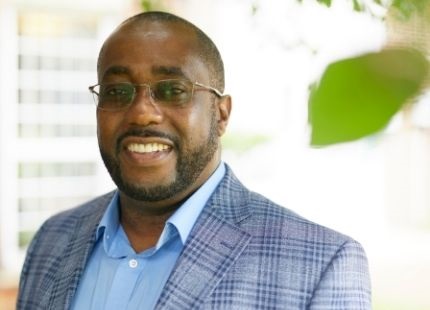
Dr. Wardell Powell
Education
Dr. Wardell Powell
Teaching science to marginalized students and developing a pipeline for STEM (Science, Technology, Engineering, Mathematics) teachers of color are two issues that school districts across the country continue to struggle with, according to Framingham State University Education Professor Dr. Wardell Powell.
“There are a slew of reasons for this,” says Powell. “If students from marginalized communities don’t have good educational experiences while they are in the K-12 system, this is going to impact their interest in seeking education as a career.”
Powell developed his love for science growing up in his native Jamaica, where he studied agricultural science at the College of Agriculture and Life Sciences. After migrating to New York City, he expanded into biology. After three years teaching life science courses in New York City public schools, he relocated to Florida where he taught science for 10 years, and then become a regional science coach with Polk County Schools. While in Polk County, Dr. Powell worked with school-based administrators and teachers in elementary, middle, high schools, and opportunity centers to analyze school, class, and individual student data to determine needs in the content area. In his capacity as a Regional Science Coach, Dr. Powell also supported teachers in planning instruction to meet the needs of all students through differentiated instruction.
Dr. Powell received his Ph.D., from the University of South Florida, Tampa. His research focuses on the use of socioscientific issues as a critical tool for enhancing scientific literacy among marginalized students in the K-12 system.
“It’s clear that when you can make teaching relevant to students’ lives, they have a far greater level of success in the classroom,” says Powell. “Once you are able to tap into their lived experiences and then engage them in the science, that creates interest.”
Powell and his colleagues recently received am AmeriCorps planning grant focused on establishing strategies to get more candidates of color into the teaching workforce, which research demonstrates improves outcomes for students of color.
“The K-12 systems are becoming more and more diverse, however it isn’t translating into the diversification of the teaching workforce,” he says.
